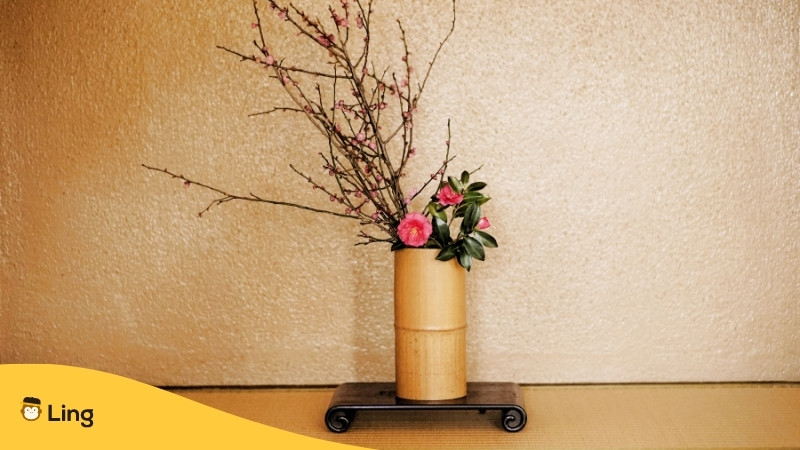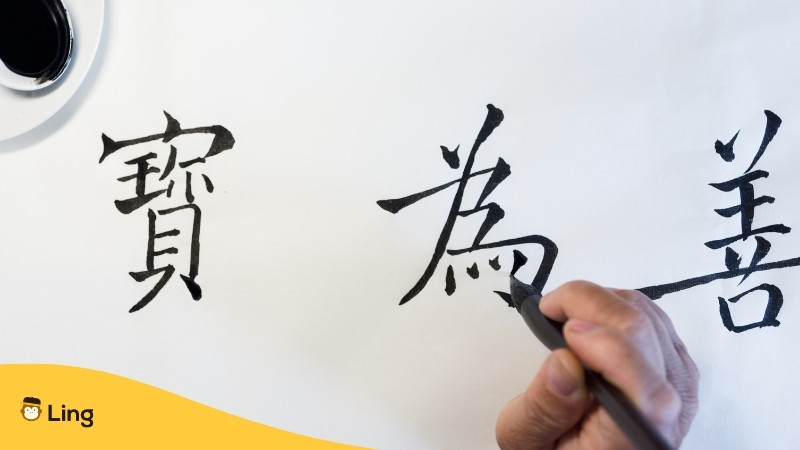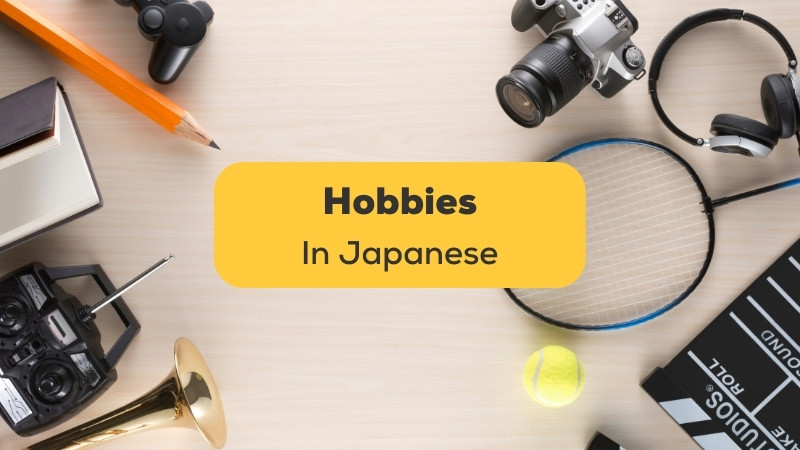Want to enhance your Japanese conversational skills and level up your small talk with the local people in Japan as a traveler? Then you should learn how to talk about hobbies in Japanese!
Asking about someone’s hobbies is a great way to start small talk and get to know a person better. It’s likely that Japanese people will ask you what you do in your free time after you introduce yourself in a casual conversation.
When you’re asked those kinds of questions, it’s a perfect opportunity to leave a good impression on Japanese people and express yourself and your lifestyle in the best way. Who knows, maybe you have some common hobbies with a Japanese person and you will turn out to be great friends!
So, if you’re learning Japanese before you set off to Japan, you should definitely add hobbies to your Japanese vocabulary! In this blog post, you’ll find a comprehensive vocabulary list for hobbies in Japanese, traditional Japanese hobbies, plus many other useful Japanese phrases.
Page Contents:
- Why Should You Learn Hobbies In Japanese?
- Unique Traditional Japanese Hobbies
- Japanese Vocabulary List For Hobbies
- How To Talk About Hobbies In Japanese?
- Learn Japanese With Ling App!
Why Should You Learn Hobbies In Japanese?
Hobbies, such as watching movies, and reading books, have a big place in our lives. They even give clues about our lifestyles. Also, people tend to have better relationships with people they have many things in common.
So, I see hobbies as a mediator between people. They enjoy talking about their hobbies and they end up doing these activities together.
That’s why you should be able to talk about your hobbies and favorite things in Japanese as well.
Unique Traditional Japanese Hobbies
By learning about traditional pastime activities in Japan, you can properly experience Japanese culture and I’m sure you’ll find these authentic activities interesting.
生け花 (Ikebana) – Traditional Japanese Flower Arranging

生け花 (ikebana) literally means “living flower.” Basically, it is a flower-arranging activity but it is actually more than that. People who practice ikebana feel closer to nature. It provides a kind of spiritual well-being like meditation. If you are interested in aesthetics, decoration, and colors you should try ikebana.
書道 (Shodō) – Japanese Calligraphy

Another meditation-like Japanese pastime activity is Shodo. To practice this beautiful Japanese calligraphy art, you’ll need a brush, ink stick, ink stone, and special mulberry paper. This activity can help you with your Japanese writing skills as a result.
弓道 (Kyūdō) – Japanese Archery

Kyudo is known as Japanese archery. It’s practiced in a kimono, hakama, and tabi. (You can check out this blog post to learn about clothes in Japanese!) You need to be active and dedicated, to practice kyudo successfully since it is a sport that requires deep focus.
マンガ (Manga) – Japanese Comic Books

Manga, also known as Japanese comic books, has been around since the middle of the last century, but it has only become a facet of Japanese culture in the last couple of decades. Since manga covers every genre, people of all ages and from all backgrounds read the comics.
Also, popular manga series are often adapted into anime (アニメ), also known as Japanese cartoons, for those who are more into watching than reading.
Japanese Vocabulary List For Hobbies
Here is a comprehensive list of Japanese words used to express common hobbies.
How To Talk About Hobbies In Japanese?
These are the most commonly used phrases to ask about someone’s hobby and answer it in Japanese.
Or if you want to sound polite:
If someone directly asks you “しゅみはなんですか” you don’t have to repeat 趣味は (し ゅ み は) while answering since you both already know you’re talking about hobbies. For example:
Q: 趣味は何ですか (shumi wa nan desu ka)
A: 趣味は空手です (shumi wa karate desu)
Japanese Phrases To Ask Someone’s Hobbies
- 趣味は何? (Shumi wa nani?) – What’s your hobby?
- 趣味あるの? (shumi aru no?) – Do you have a hobby?
- 暇な時に何をするの? (Hima na toki ni nani o suru?) – What do you do in your free time?
- 何をするのが好き? (Nani o suru no ga suki?) – What do you like doing?
- 最近ハマってることある? (Saikin hammatteru koto wa?) – What are you into recently?
Talk About What You Like To Do With 好きです
You can also talk about your hobbies by describing what you like doing in your free time. To form an “I like…” sentence in Japanese, you should use the phrase 好きです.
Your hobby + 好きです
If you want to learn more Japanese and practice what you’ve learned in this blog post, why don’t you try Ling App?
Learn Japanese With Ling App!
If you want to learn Japanese, among the 60+ languages offered in the app, the Ling App is here for you!

The Ling app provides a wealth of Japanese vocabulary that you can learn at your own pace. Just grab your iOS or Android device right now and head to Google Play Store or Apple App Store to download it. Mini-games, puzzles, and AI chatbots to practice Japanese speaking skills are just a few of the interactive activities to help you learn Japanese easily.
Plus, don’t forget to visit our Japanese blog weekly to learn more about the Japanese language and culture!
Most Japanese learners use Ling to improve their language skills, so why not join them? Download the Ling App, and get ready to speak Japanese soon!
Until next time, じゃあまたね!



































































